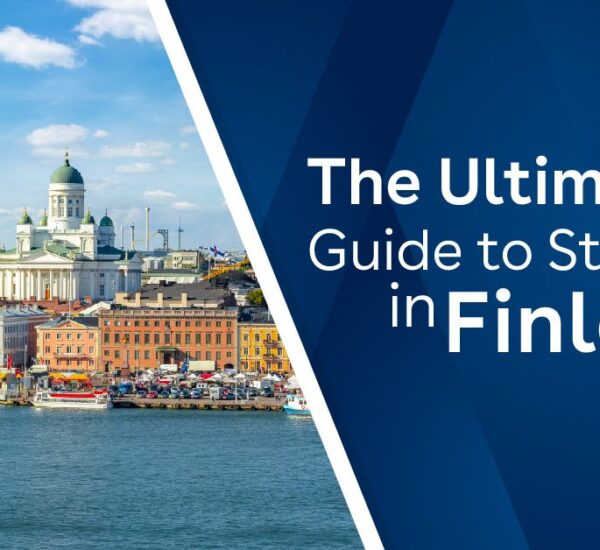Studying abroad can be one of your life’s greatest adventures—but the application process requires careful preparation. From visa interviews to university admissions, having the right documents on hand is crucial. Missing a single form or certificate can delay your plans or even derail your acceptance.
This guide provides a detailed list of the essential documents and best practices to help you apply for study abroad programs with confidence. Whether you’re aiming for an undergraduate, master’s, or PhD, this checklist covers everything you need—from passports to proof of funds.
📋 1. Application Form
What it is: The official online or paper form provided by the university or study abroad agency.
Why it matters: This is your first impression; admissions officers use it to verify your personal details and academic history.
Tips:
- Fill every field accurately—use consistent spelling of your name.
- Double-check deadlines and program codes.
- Save drafts and back up your work.
🛂 2. Valid Passport
What it is: Your international travel document.
Why it matters: Required for visa applications, flight bookings, and on-campus identification.
Tips:
Ensure validity of at least 6–12 months beyond your planned return date.
Keep a digital copy and 2–3 physical copies.
Check visa pages are blank and undamaged.
🖋️ 3. Statement of Purpose (SOP)
What it is: A personal essay outlining your academic background, career goals, and motivation for choosing the program.
Why it matters: Demonstrates your fit for the university and clarifies your vision.
Structure:
Introduction & background
Academic/professional achievements
Reasons for program choice
Future aspirations
Tips:
Keep it concise (500–800 words).
Tailor each SOP to the specific university.
Use active language and proofread thoroughly.
🎓 4. Academic Transcripts & Certificates
What it is: Official transcripts or mark sheets from your high school, college, or previous university.
Why it matters: Provides evidence of your academic performance.
Tips:
Obtain certified true copies or sealed transcripts.
If required, get them translated by an authorized translator.
Include degree certificates alongside transcripts.
📜 5. Letters of Recommendation (LORs)
What it is: Written endorsements from professors, employers, or mentors.
Why it matters: Offers third-party validation of your skills, work ethic, and potential.
Tips:
Request 2–3 LORs from individuals who know you academically and/or professionally.
Provide recommenders with your CV and SOP draft for context.
Ask 2–3 months in advance and send polite reminders.
📑 6. Standardized Test Scores
What it is: Scores from exams like IELTS, TOEFL, PTE for English; SAT/ACT for undergraduate; GRE/GMAT for graduate.
Why it matters: Confirms your language proficiency and/or quantitative abilities.
Tips:
Check each university’s minimum score requirements.
Allow 8–12 weeks for preparation and registration.
Send scores directly from the testing agency to institutions.
💰 7. Proof of Financial Resources
What it is: Bank statements, sponsor letters, or scholarship award letters proving you can cover tuition and living costs.
Why it matters: Required for visa applications and to ensure you can financially support yourself.
Tips:
Maintain a stable balance for at least 3–6 months.
Combine family sponsor letters or educational loans if needed.
Provide scholarship confirmations if awarded.
📝 8. Curriculum Vitae (CV) / Resume
What it is: A snapshot of your academic achievements, work experience, publications, and skills.
Why it matters: Highlights your personal brand and relevant experience, especially for MBA, Master’s, or PhD programs.
Tips:
Keep it 1–2 pages max.
Format clearly with sections: Education, Experience, Skills, Awards.
Tailor to emphasize research or leadership as relevant.
🏥 9. Health & Medical Certificates
- What it is: Health insurance, vaccination records, and medical fitness certificates.
- Why it matters: Ensures you meet host country entry and public health requirements.
- Tips:
- Check for required vaccinations (e.g., yellow fever, TB).
- Obtain private health insurance if not covered by the university.
- Carry prescription records if you take regular medication.
📸 10. Passport-Sized Photographs
- What it is: Recent passport photos adhering to the visa/photo guidelines of your host country.
- Why it matters: Used on visa applications, student ID cards, and residence permits.
- Tips:
- Use a professional photographer or photo booth to meet exact size, background, and quality specs.
- Carry 6–8 copies for various applications.
🛂 11. Student Visa Application
- What it is: Official visa application form plus supporting documents required by the embassy or consulate.
- Why it matters: Legal permission to enter, study, and work (if allowed) in the host country.
- Tips:
- Complete the visa form meticulously and honestly.
- Schedule your visa interview well in advance.
- Prepare original documents and copies in a neat file.
📂 12. Proof of Accommodation
- What it is: Housing confirmation from university dorms or rental agreement for off-campus lodging.
- Why it matters: Many embassies require proof of secure housing during your stay.
- Tips:
- Reserve on-campus housing early through the university portal.
- If renting privately, get a signed lease and landlord contact.
🔖 13. Police Clearance & Background Checks
- What it is: Criminal record certificate or police clearance for certain countries and graduate programs.
- Why it matters: Required for visa security checks and teaching placements.
- Tips:
- Request from your local police station or online government portal.
- Ensure it’s translated and notarized if needed.
🗂️ 14. Birth Certificate & National ID
- What it is: Long-form birth certificate and/or national identity card.
- Why it matters: Verifies your date of birth and citizenship.
- Tips:
- Obtain an official copy from the vital records office.
- Translate and notarize if the host country requires it.
🎨 15. Portfolio (for Creative Programs)
- What it is: A collection of artwork, design projects, or architecture drawings.
- Why it matters: Essential for admission to fine arts, architecture, fashion, or media programs.
- Tips:
- Curate 10–15 best pieces demonstrating range and skill.
- Include project descriptions, tools/software used, and dimensions.
- Provide digital portfolio links (Behance, personal website).
💼 16. Proof of Work Experience (if applicable)
- What it is: Experience letters, internship certificates, or employment contracts.
- Why it matters: Critical for MBA and professional master’s programs to assess your background.
- Tips:
- Include job title, duration, key responsibilities, and achievements.
- Provide contacts for employer verification if requested.
🔍 17. Research Proposal (for PhD Applicants)
- What it is: Detailed research plan outlining objectives, methodology, and literature review.
- Why it matters: Shows readiness for independent research and matches you with a supervisor.
- Tips:
- Define a clear research question and significance.
- Show familiarity with current literature and research gap.
- Outline timeline, resources, and potential funding.
🚀 Final Checklist & Tips
- Create a master spreadsheet of every document, deadline, and fee.
- Scan and back up all originals in the cloud.
- Use secure PDF formats; keep file sizes under specified limits.
- Verify each country’s translation and notarization requirements.
- Don’t wait until the last minute—submit early to avoid technical glitches.
- Keep hard copies in a labeled folder for interviews and visa appointments.
By gathering these critical documents in advance and following the best practices above, you’ll streamline your study abroad application, minimize last-minute stress, and maximize your chance of admission. Now, you’re ready to take the world by storm—bon voyage and hei sammen! 🌏🎓


